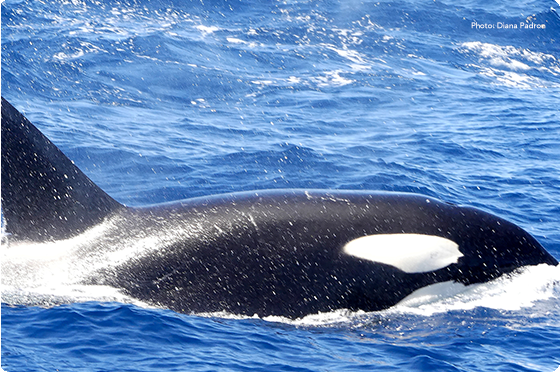
In a brief filed with the U.S. Court of Appeals for the District of Columbia on March 19, 2021, the National Marine Fisheries Service (NMFS) maintained that it lacks the legal authority to obtain the medical records of Tilikum, the orca made by famous by the documentary Blackfish, who died in 2017. The filing represents the first significant development in the litigation since the U.S. District Court for the District of Columbia’s March 2020 dismissal of a lawsuit brought by several scientists and animal protection organizations seeking Tilikum’s medical records and death report. Tilikum, as Blackfish portrayed, was responsible for the deaths of three people while being held in captivity at SeaWorld. The plaintiffs sued the National Marine Fisheries Service (NMFS), claiming that the agency violated the Administrative Procedure Act (APA) by acting arbitrarily and capriciously when it determined that it lacked the authority to enforce a permit condition issued under the Marine Mammal Protection Act (MMPA).
Special Exception Permits are permits issued to marine mammal parks for the taking or importing of marine mammals. The MMPA requires NMFS to impose conditions on Special Exception Permits as the agency deems appropriate, and one of the more common provisions that NMFS inserts into these permits is the so-called “necropsy condition” at issue in the litigation surrounding Tilikum’s death. The necropsy condition requires the permittee—in this case, SeaWorld—to submit necropsies, clinical histories, and other medical records to NMFS within thirty days of a marine mammal’s death. But, pursuant to an amendment to the MMPA that Congress enacted in 1994, NMFS only has jurisdiction over the taking and importation of marine mammals held for purposes of public display; subsequent “care and maintenance of captive marine mammals,” on the other hand, falls under the jurisdiction of the U.S. Department of Agriculture’s Animal and Plant Health Inspection Service (APHIS).
The plaintiffs in this case claimed that, upon Tilikum’s death in January 2017, SeaWorld was obligated under its NMFS Special Exception Permit to submit the orca’s records within 30 days of his death. NMFS, on the other hand, maintained it lacked the authority to obtain the necropsy report from SeaWorld pursuant to the MMPA’s 1994 amendment because the reports were now under APHIS’s jurisdiction. NMFS therefore did not obtain Tilikum’s necropsy and other medical records. After several failed requests, the plaintiffs—which included several individual scientists and organizations such as People for the Ethical treatment of Animals (PETA), Animal Welfare Institute, Earth Island Institute, Whale and Dolphin Conservation, and Cetacean Society International —filed suit in federal court in 2018. Then, in 2019, the defendants filed a motion to dismiss the case, arguing that the plaintiffs lacked standing and the complaint failed to state a claim.
Pursuant to Article III of the Constitution, federal courts only have constitutional authority to resolve cases or controversies in which a party has standing to sue. Whether a party has standing to sue is dependent on three elements: (1) the plaintiff must have suffered an injury in fact; (2) there must be a causal connection between the injury and conduct brought before the court; and (3) it must be likely, rather than speculative, that a favorable decision by the court will redress the injury. If a plaintiff cannot meet the first element, injury in fact, then the court need not consider the remaining elements.
In the present case, the plaintiffs alleged injury in fact on the grounds that NMFS “deprived them of information that they would otherwise have received in the absence of that decision: namely, the necropsy reports that marine parks and zoos were required to submit to NMFS” per the terms of the pre-amended MMPA permits. Further, as a result of NMFS’s decision that it lacked jurisdiction, the plaintiffs alleged they were unable to obtain medical and scientific information vital to their professional pursuits.
Because the plaintiffs’ claimed injury in fact was based on the deprivation of information to which they believed they were lawfully entitled, the court stated that plaintiffs had to point to some statutory entitlement to the information it sought. In reaching its decision, the District Court stated, “[n]one of the plaintiffs have alleged that they have ‘been deprived of information’ that, even on their interpretation of the law, ‘a statute requires the government or a third party to disclose’ to them.” Nothing in the MMPA or any other statute requires NMFS to collect necropsy reports from marine parks and zoos. Moreover, the court held that the unenforced necropsy provisions that the plaintiffs identified as the source of their injuries “[were] not creatures of statute, but instead consequences of NMFS’s discretionary decision to include those provisions in the permits it issued, as well as its discretionary decision to issue those permits in the first place.” The court therefore held that, because no statute required the government or a third party to disclose the information that the plaintiffs sought, the plaintiffs failed to allege a cognizable injury in fact and therefore lacked standing to pursue the lawsuit. The court accordingly granted the defendant’s motion to dismiss, effectively barring plaintiffs from obtaining Tilikum’s medical records. Plaintiffs have appealed the district court’s decision to the D.C. Circuit Court of Appeals, which will begin to consider the case’s future once all parties’ briefs have been submitted.
The dispute over Tilikum’s death records isn’t the only whale-related litigation making headlines lately. A different federal district court is currently reviewing a NMFS permit issued to an aquarium in Connecticut to import five captive-born beluga whales after a group of animal rights organization challenged the permit on the basis that it violates various requirements of the MMPA, and also that NMFS failed to analyze the injuries that the permit would cause beluga whales in violation of the National Environmental Policy Act. The outcomes of both cases are sure to make a splash, especially in light of the implications that may ripple across the scientific and environmental communities.












